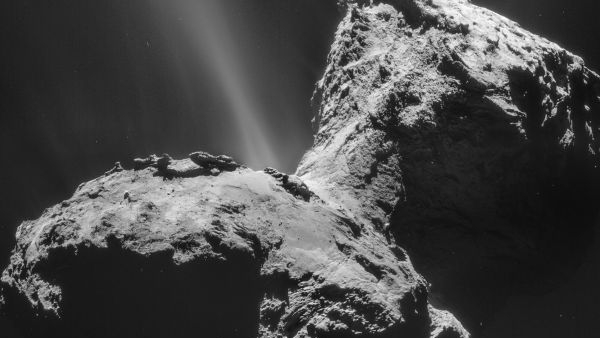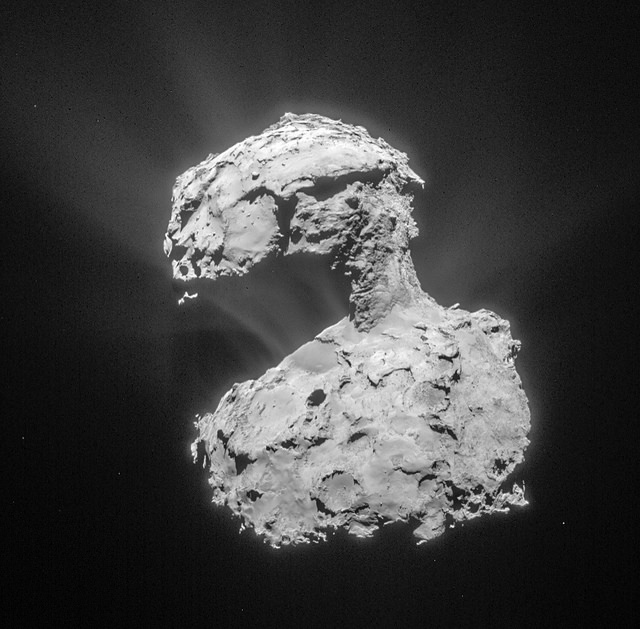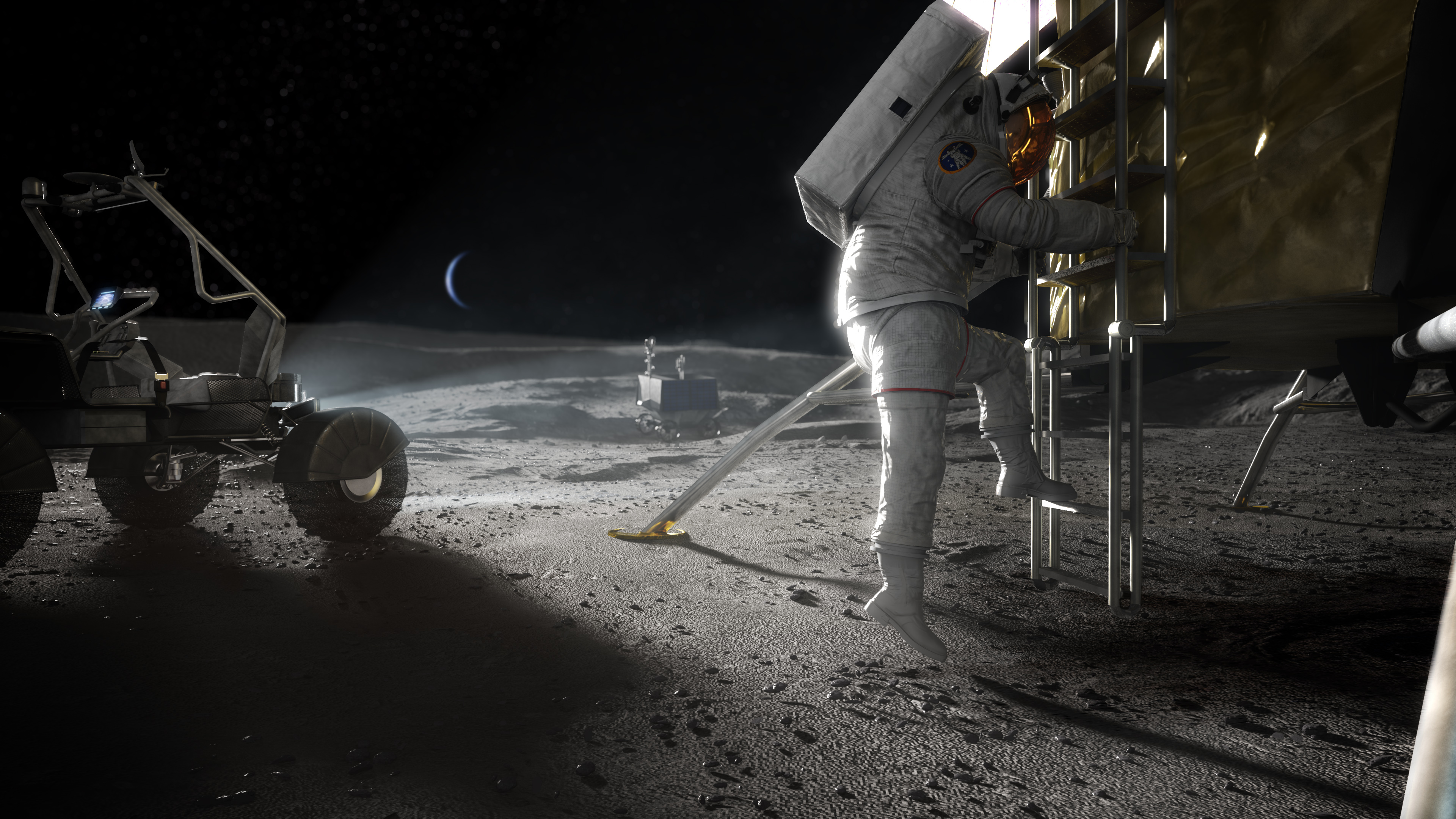Comets probably delivered Earth its water billions of years ago, new study reveals
"This is just one of those very rare cases where you propose a hypothesis and actually find it happening."

Water. All life on Earth requires it in some way or another, and it's hard to miss that roughly 70% of our planet's surface is covered in the stuff. Thus, understanding where Earth's water came from is a very important part of understanding life's origins, and researchers were pretty sure they knew how it got here — up until 2014.
Basically, scientists previously believed that Earth's liquid reservoirs arrived here on icy asteroids and comets from the outer regions of the solar system during the early stages of Earth's formation. However, a 2014 analysis of the molecular constituents of water on the comets that likely seeded Earth's water cast doubt on the hypothesis.. And now, the researchers think they know why their analysis of water on these icy bodies posed such a conflict.
The connection between those icy comets — which are called Jupiter-family comets because their orbits are affected by Jupiter's gravitational influence — and Earth's water rests on a key molecular signature. That signature has to do with specific ratios of the hydrogen variant, or isotope, called deuterium. In general, ratios of deuterium to regular hydrogen in water give scientists a strong clue as to where that water formed. Typically, water with more deuterium is more likely to form in colder environments, which means water with higher levels of deuterium should have formed further away from the sun.
For the last few decades, deuterium levels in water found in the vapor trails of several Jupiter-family comets displayed similar levels to that of Earth's water.
"It was really starting to look like these comets played a major role in delivering water to Earth," Kathleen Mandt, a planetary scientist at NASA's Goddard Space Flight Center said in a statement.
But uncertainty was raised when the European Space Agency's 2014 Rosetta mission to the comet 67P/Churyumov–Gerasimenko, or 67P for short, found higher concentrations of deuterium on any comet — about three times more deuterium than there is in Earth's oceans, which have roughly 1 deuterium atom for every 6,420 hydrogen atoms.
"It was a big surprise and it made us rethink everything," Mandt said.
Get the Space.com Newsletter
Breaking space news, the latest updates on rocket launches, skywatching events and more!

But the story isn't over yet. Mandt and her team decided to revisit Rosetta's deuterium measurements of 67P, and through lab studies and comet observations, they found that cometary dust might be affecting the readings of the deuterium ratio that scientists observed in 67P's vapor.
When comets pass closer to the sun during their orbit, their surfaces warm up, which can release gas and dust from the comet's surface. Water with deuterium sticks to dust grains more readily than regular water does, and when ice clinging to the dust grains is released into the vapor trail of a comet, it could give observers the impression that the water in the comet is more deuterium-rich than it actually is.
"So, I was just curious if we could find evidence for that happening at 67P," Mandt said. "And this is just one of those very rare cases where you propose a hypothesis and actually find it happening."
Join our Space Forums to keep talking space on the latest missions, night sky and more! And if you have a news tip, correction or comment, let us know at: community@space.com.

Conor Feehly is a New Zealand-based science writer. He has earned a master's in science communication from the University of Otago, Dunedin. His writing has appeared in Cosmos Magazine, Discover Magazine and ScienceAlert. His writing largely covers topics relating to neuroscience and psychology, although he also enjoys writing about a number of scientific subjects ranging from astrophysics to archaeology.
-
Mergatroid This seems to be just like coffee discussions. Every few years it's a complete 180 on whether coffee is bad for you or not.Reply
Over the last year or so, I have read a few articles saying it's unlikely comets brought Earths water, and it was more likely that the rocks the planet is made from contained water and that it rose to the surface over the evolution of the planet.
It's getting to the point one doesn't know what to believe. -
Torbjorn Larsson It is certainly possible, the question remains open.Reply
“The results of the experiments summarized in this work, focused on surface bombardment with hydrogen atoms, clearly confirm the theory of the interaction of excited hydrogen or deuterium Rydberg atoms and ions with the surface oxygens of oxide minerals,” the authors explain. “Our experiments attempt to explain the origin of water in the areas of oxygen-containing solid material (e.g., dust, meteoroids, asteroids, comets) exposed to a stream of charged particles close to a parent star.”
https://www.universetoday.com/168998/did-some-of-earths-water-come-from-the-solar-wind/
Earth’s atmosphere and magnetosphere shield it from the solar wind, so there’s no way the wind could’ve created water right on Earth’s surface. However, as the study shows, the wind can create water on the surface of other bodies like asteroids, and the water can be adsorbed and held firm, then delivered to Earth via impacts.
“This scenario is also applicable to the origin of water on Earth,” the authors write. “Due to this effect, a water molecule can be adsorbed on the surface of oxygen-containing particles and then transported over long distances and times,” the researchers write.
This study won’t be the end of the ongoing effort to account for Earth’s water. In a fascinating roundabout way, this research brings us back to asteroids and meteorites delivering Earth’s water.
Alas, click bait 'answers' and fast food delivery answers is not what science serves up.Mergatroid said:It's getting to the point one doesn't know what to believe.
On the contrary, the nature of open questions implies that we can trust the scientific process and the eventual result (if any). Ironically, the longer the question remains open, the more trust we should get (and give).
Sure, it can test our patience. But adults are generally good at handling delays of gratification. it's part of life. -
Adel The presence of water on Earth is not due to comets, but rather is the result of a great event that is considered the largest event in the solar system. This event was the reason for the presence of water and life on Earth. A collision occurred between the Earth and the Moon, which resulted in the Earth gaining crust from the near side of the Moon. This acquired crust is the reason for the existence of the lunar seas and the continents of the Earth. This collision resulted in the existence of water and life on Earth. Because of the water and the acquired crust that contains the elements necessary for life found in the lunar soil, the lunar seas are considered the geological form of the ancient continents of the Earth, and the continents of the Earth are the geological form of the lunar seas. This scientific result will be a scientific and geological explanation for a number of unanswered scientific questions about the moon and the earth, as I will explain through what I wrote today in the forum. This scientific result will also reveal a number of the moon’s mysterious secrets, as well as change and correct a number of prevailing scientific concepts. It will also reveal the origin of the moon and the biggest event in the solar system.Reply
